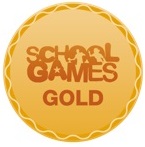Year 1
The teachers in Year 1 are Miss Kaur Mrs Smith-Lilley and Mrs Steed.
Our Learning Support Assistants are Mrs Whitehall, Mrs Wilson, Mrs Clowes and Mrs Nicholls.
This term we will be looking at:
In Maths this term we will building upon our knowledge and skills in adding, subtracting and finding missing numbers in equations within 20 before moving on to place value within 50. After half term we will be looking at measuring length, volume and capacity in non-standard and standard units. We will be exploring comparing different measurements, utilising our skills in addition and subtraction and answering problem solving and reasoning questions.
In English we will continue to develop our writing and developing independence in key features of writing including appropriate use of:
- spaces between words
- capital letters and full stops to demarcate sentences
- capital letters for proper nouns
- adjectives to describe
- ‘and’ to join words and clauses
When writing, we will continue to encourage the children to use their phonic knowledge in order to write words and sentences independently. However, we will balance this with continually working to increase the bank of words that children know how to spell. While basic skills in writing are important, we will be doing this within contexts of narratives, nonfiction texts and poems. This makes writing lessons more engaging and giving the basic skills have a purpose, i.e. adjectives make our writing more descriptive and create images in our readers mind, while correct punctuation allows our written work to be read with expression.
We will also be learning to use the prefix ‘-un’ and suffixes as a plural marker for nouns.
We are continuing to work hard with the children to make sure they are forming all their letters correctly. Letters are organised into 4 groups when we work on letter formation:
‘around’ letters: c, a, o, d, g, q
‘down’ letters: l, t, b, p, k, h, i, j, m, n, r, u, y
‘curly’ letters: e, f, s
‘zigzag’ letters: v, w, z, x
We are also now focusing on the relative size of letters, tall, short and long.
‘tall letters’: b, d, h, k, l, (f and t are just a little bit smaller)
‘short letters’: a, c, e, i, m, n, o, r, s, u, v, w, x, z
‘long letters’: g, j, p, q, y
Please do not be tempted to start joined up handwriting with your child at home. Children learn this very quickly, once they are ready, in school. Right now, the children are developing a neat and fluid style of handwriting and this is helping them to write for longer, which is a greater focus at this stage in Year 1 and more appropriate to the children’s developmental stage.
This term in Science we will be learning about plants including observing how plants change over the seasons. For example, leaves falling off the trees. We will be identifying the different parts of a plant and exploring their function. We will also be looking at different types of plants.
In Geography we will be building upon our scientific knowledge of seasons by identifying seasonal daily weather patterns in the United Kingdom and the location of hot and cold areas of the world in relation to the Equator and the North and South poles.
In History we will be exploring different ways castles were built. We will also explore what castle life was like.
In Art we will be exploring texture, tone and colour mixing. After half term, we will be looking at the work of the artist Lowry and using his work as inspiration to create our own paintings.
Following on from the theme of homes in history, our DT topic will be about homes. The children will learn to design and create a product.
In PHSE we will considering our impact in the wider world, including what improves and harms the local environment.
In RE we will be learning about different religious stories and exploring some religious beliefs and teachings.
In Music we are going to be learning how to use instruments to create rhythm.
In outdoor PE we are going to be learning attacking skills such as passing and dodging. After half term we will be learning how to use a tennis racket and a cricket bat. They will learn how to hold each one correctly and use it to control beanbags and balls in various ways, including striking to a target.
During indoor PE we will be learning to work individually, in pairs and in groups and will develop an understanding of dance terminology such as mirroring, improvisation, canon and unison.
Homework
Homework will be given out every Friday and will reflect the building of knowledge and skills learnt in school.
Children will be sent a new reading book home every week and will read with an adult in school. It is important children bring their reading pack into school on their designated day.
Reading
The more reading that your child does, the better their phonics and writing will be!
We have a new scheme of reading books so please refer to the reading schedule to best support your child.
Reading does not always have to be their reading book every night. Gere are some ideas for reading activities that you could do with your child...
- Reading the food packets in a supermarket.
- Looking for letters and signs when you are travelling in the car or bus.
- Finding sounds to read at the park or at the swimming pool.
- Making and reading sounds with paint, water, stones or other craft materials.








